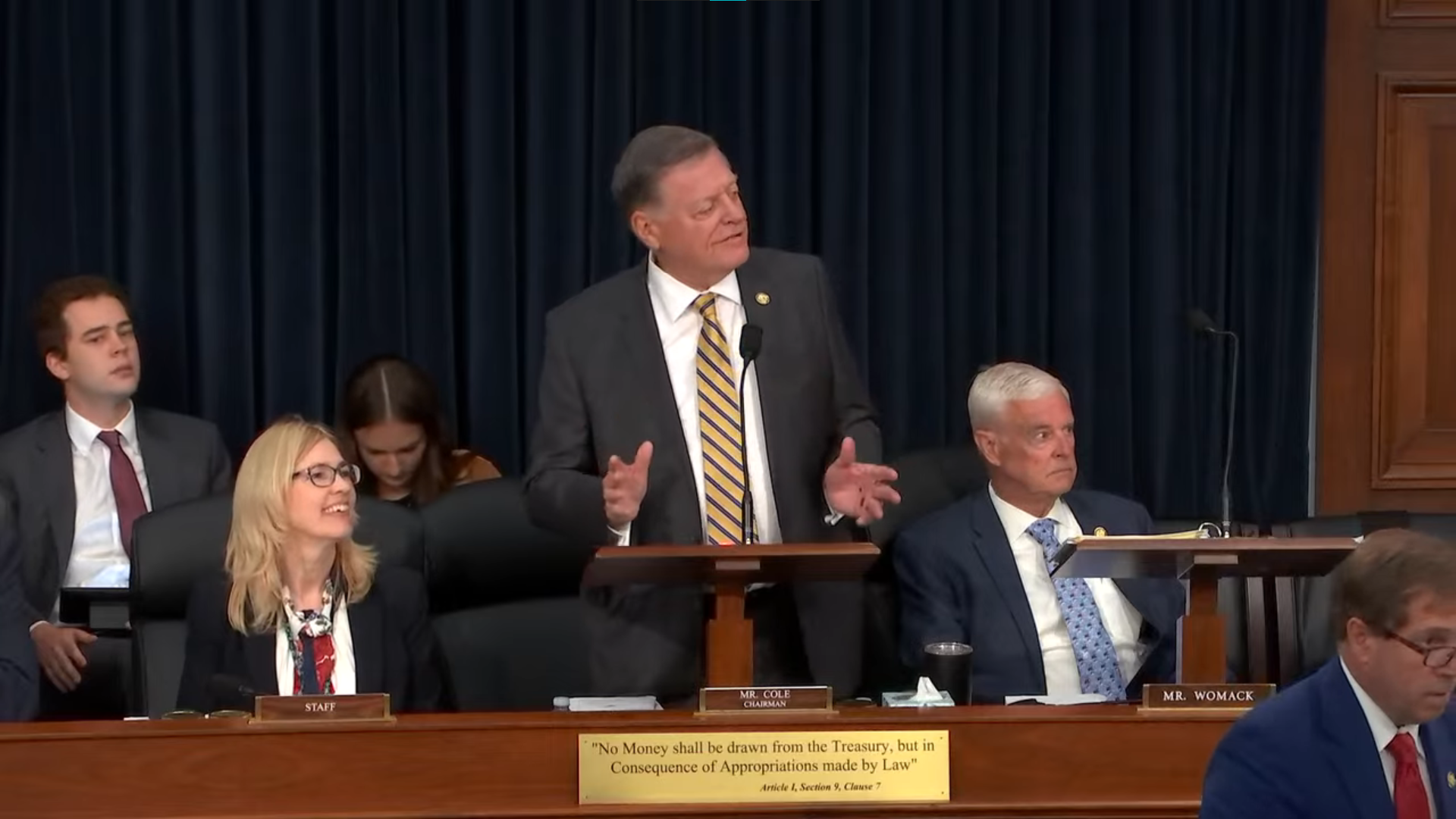Rep. Tom Cole (R-OK) kicked off a House Appropriations Committee hearing Thursday with a new plaque plastered below his nameplate emphasizing Congress’ power of the purse, an apparent reference and rebuke of President Donald Trump’s effort to claw back $9 billion in spending.
Narrowly approved in the Senate early Thursday morning, the White House’s request to claw back $9 billion in funding already appropriated by Congress largely targets public broadcasting and foreign aid. In the package, around $8 billion would be pulled from foreign aid and international assistance, and around $1.1 billion would be slashed from the Corporation for Public Broadcasting, impacting PBS and NPR.
Cole, who chairs the House Appropriations Committee, has been muted in his thoughts regarding the $9 trillion in cuts, avoiding outright criticisms of the proposal, but had noted that the cuts were beyond what he preferred.
“There are things in there I would've preferred not to cut,” he told reporters Wednesday ahead of the Senate’s vote on the proposal, USA Today reported. “But, you know, I understand ... you're going to end up having to cut some things you don't want to cut. That's just the nature of it. Every decision can't be one that makes you happy."
Perhaps an unconfrontational way to communicate his dissatisfaction with the cuts, Cole appeared with a new plaque adjourned below his nameplate in the House Appropriations Committee hearing Thursday, one that was not present in the committee’s previous hearing in the same room.
“No money shall be drawn from the Treasury, but in consequence of appropriations made by law,” the plaque read, an excerpt from Article I of the Constitution. Cole made no mention of the plaque during the proceedings.
The proposal has largely been a partisan issue, with Republicans strongly supporting the measure and Democrats opposing it, though there has been some dissent within the GOP; Sens. Susan Collins (R-ME) and Lisa Murkowski (R-AK) voted with Democrats against the proposal in the Senate Thursday.
Critics, most Democrats, have argued the funding clawback violates the US Constitution in defying Congress’ sole ability to control government spending, with some Republicans joining in condemnation as well, including former Rep. Charlie Dent (R-PA), who said the proposal would set a “really bad precedent.”Leave a Comment
Related Post
